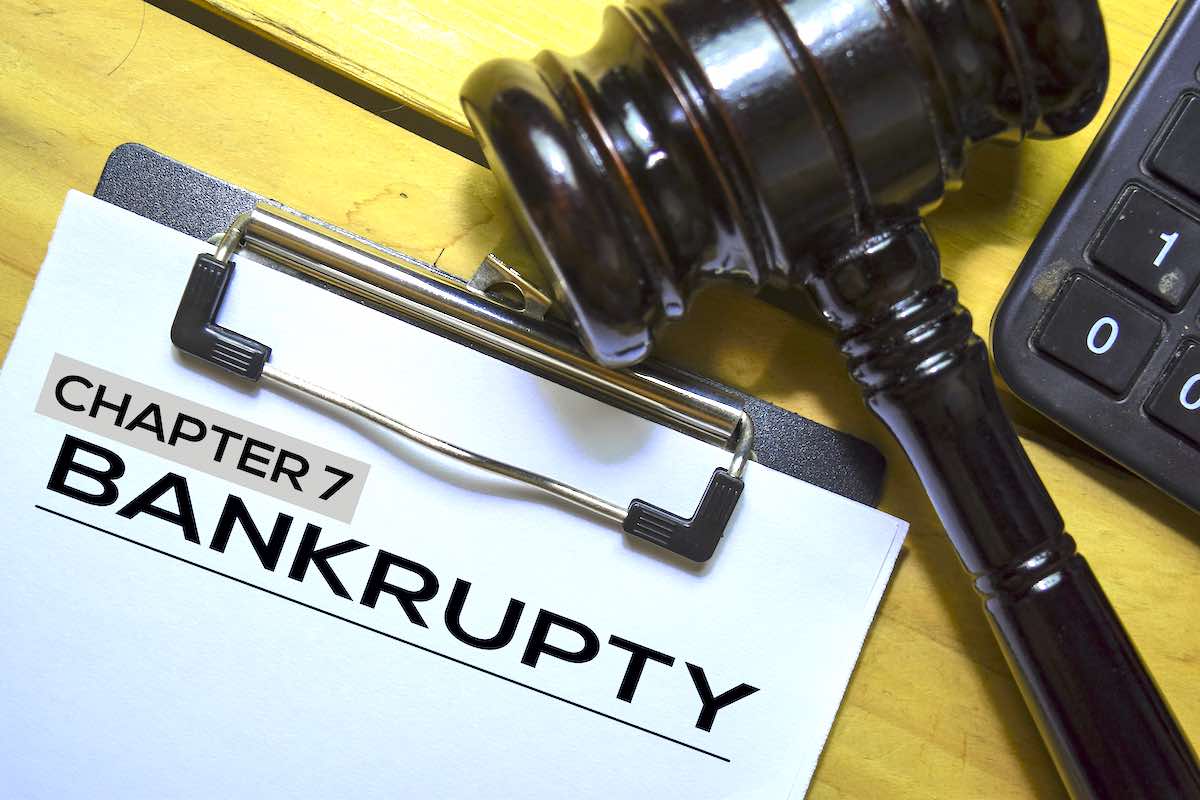Cleveland Chapter 7 Bankruptcy Lawyer

The two most common types of bankruptcies filed in Cleveland are Chapter 7 and Chapter 13 bankruptcy. Chapter 7 wipes out most of your debts in 120 days, while Chapter 13 is a 3-year to 5-year payment plan where you pay back part of your debt and the rest is eliminated. Chapter 7 is a better fit for most people who are looking for a Cleveland bankruptcy lawyer.
Bankruptcy Process for Chapter 7
Chapter 7 is a 120-day process that eliminates all debts except for student loans, child support, alimony, recent taxes, debts incurred by violence, fraud or drunk driving, speeding tickets, parking tickets, court costs, and certain other debts. Credit card debt, bank loans, medical bills, auto loans, home loans, payday loans, debts to landlords, and most other types of debts are eliminated by Chapter 7.
Chapter 7 bankruptcy is the most powerful debt relief tool that exists for individuals, period. That is why most people who have the option of filing a Chapter 7 bankruptcy choose to do that rather than filing a Chapter 13 bankruptcy.
How-To: Filing Chapter 7 Bankruptcy
Filing a Chapter 7 bankruptcy is similar to filing your income taxes, except with a lot more paperwork and one court hearing. The process consists of seven steps, which are explained below.
1. Initial Consultation
I sit down with you, listen to your story, and ask you a standard set of questions designed to give me a comprehensive snapshot of your financial life. This process usually lasts between 45 minutes and an hour.
At the conclusion of the interview, I can usually tell you whether you qualify for chapter 7 bankruptcy, identify any issues in your case, and advise you whether chapter 7 would be a wise solution to your problem. Sometimes it is necessary for us to gather some follow-up info before I can give an opinion about whether chapter 7 is a good idea.
2. Information Gathering
At the conclusion of the initial consultation, I will give you a checklist of documents we need to go forward (click here for an example of the list). You have to give me these documents before I can file your case, period. There are strict rules against attorneys filing bankruptcy cases without first personally reviewing these documents.
3. Mandatory Pre-Bankruptcy Credit Counseling
Before you can file bankruptcy in Cleveland, the law requires that you complete pre-bankruptcy credit counseling from an approved agency. This can be done online or over the phone for a modest fee. I will give you the details at the intial consultation.
4. Bankruptcy Petition Filing
When you've done your credit counseling and given me all of your documents, you call me and set up an appointment to file your bankruptcy petition. You'll meet with me and we'll go over your bankruptcy petition page by page to make sure everything is accurate and all of your creditors are listed. I'll have you sign the papers in about a dozen places, give you a copy of the papers, and then file your case right there in front of you, electronically. At that time I will also give you your bankruptcy case number and the date of your bankruptcy hearing.
5. Pre-Discharge Credit Counseling
The law requires that you complete a second online (or phone) credit counseling course before your bankruptcy hearing. I will give you the details on the date we file your petition. This course does have a $20 fee associated with it. (See more about bankruptcy fees here).
6. Bankruptcy Hearing
The law requires that you attend a mandatory bankruptcy hearing and answer questions under oath. I will represent you at the hearing. The questions are basically the same questions I asked you at the initial consultation and constitute a comprehensive snapshot of your financial life: Your debts, your property, income, expenses, and other details.
The purpose of the questions is to make sure that everything in your bankruptcy petition is accurate and that there is no property that you have that is subject to seizure in the bankruptcy process. The most common type of property subject to seizure is your next year's tax refund. Other types of property that may be vulnerable include houses, cars, whole life insurance policies, bank accounts with large balances, stocks and bonds, jewelry, and other items.
I cannot control what the law says or what your rights are, but my goal is for there to be no surprises for you in the bankruptcy hearing. If there are any tricky issues in your case then I will identify those ahead of time and discuss them with you before we file your case so that you know just what to expect and what the risks are, if any.
7. Discharge
Your bankruptcy discharge (the date that your debts are officially wiped out) occurs no earlier than 120 days after your case was filed. All debts will be wiped out except for student loans, child support, alimony, recent taxes, debts incurred by violence, fraud or drunk driving, speeding tickets, parking tickets, court costs, and certain other debts.
The court notifies you of the discharge by sending you a one-page discharge order in the mail. I will also send you an electronic copy of the discharge email and follow up with you to see whether you have any lingering concerns.
